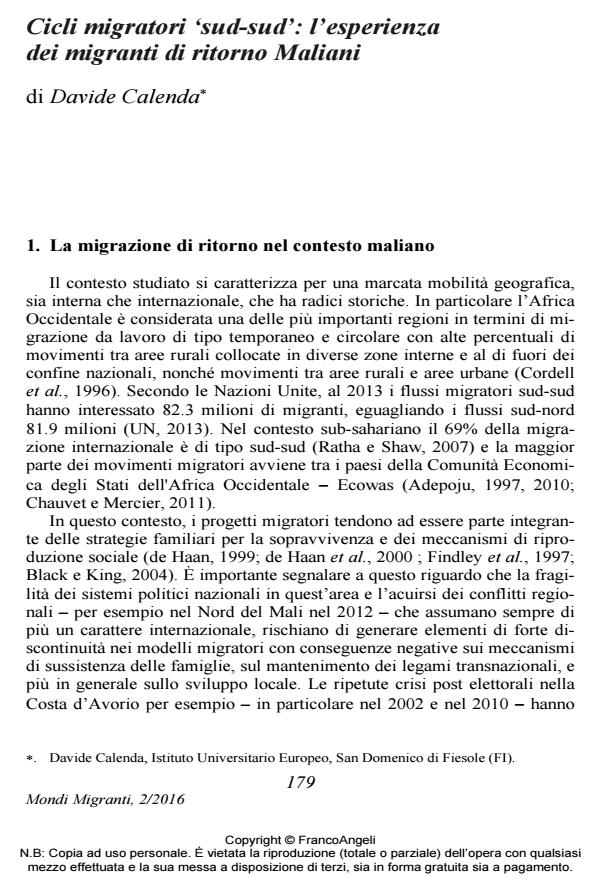South-South migration: the case of the Malian returnees
Journal title MONDI MIGRANTI
Author/s Davide Calenda
Publishing Year 2016 Issue 2016/2
Language Italian Pages 22 P. 179-200 File size 225 KB
DOI 10.3280/MM2016-002009
DOI is like a bar code for intellectual property: to have more infomation
click here
Below, you can see the article first page
If you want to buy this article in PDF format, you can do it, following the instructions to buy download credits

FrancoAngeli is member of Publishers International Linking Association, Inc (PILA), a not-for-profit association which run the CrossRef service enabling links to and from online scholarly content.
The return migration in the context of South-South migration is underresearched but is widespread (UN, 2013) and has historical roots. The context of Sub-Saharan Africa and more in general West Africa is a case in point. This region is historically characterized by a high mobility of people and the circularity of migration trajectories, both internal and international. Within this framework, the return migration is a common practice among migrants and is part and parcel of the development of transnational ties. The country surveyed in this essay is Mali and the analysis is based on structured interviews with 350 Malian returnees carried out in 2012 as part of a wider cross-country research conducted by the Return migration and Development Platform (Rdp) at the European University Institute. The information gathered through the interviews allowed conditions, motivations and choices of returnees across the three stages of the migration cycle - i.e. before emigrating, abroad and after the return - to be reconstructed. In particular this article focuses on the changes occurred during the migration cycle concerning the family and work situation, two dimensions that turned out to be central in structuring the respondents’ migration projects. The article is structured into six sections. The first two sections provide information about the context and the research methodology. The third section describes the general features of the respondents’ migratory cycles. The next two sections focus on the evolution of the family and work situation across the three stages of the migration cycle. Some conclusive remarks are provided in the last section.
Keywords: Return Migrants, Mali, migration cycle, family, work, reintegration.
Davide Calenda, Cicli migratori ‘sud-sud’: l’esperienza dei migranti di ritorno Maliani in "MONDI MIGRANTI" 2/2016, pp 179-200, DOI: 10.3280/MM2016-002009